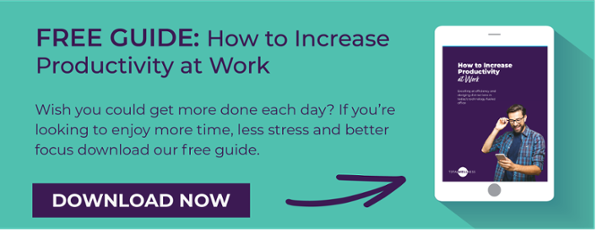The 40-hour work week sounds like a pretty relaxing schedule to a lot of employed Americans. In fact, the United States is widely considered to be the most overworked nation in the industrialized world. According to the International Labor Organization, Americans work 137 more hours per year than Japanese workers, 260 more hours per year than British workers, and 499 more hours per year than French workers. The long hours and late nights are only getting longer and later, a problem that impacts our productivity, our health, and our relationships.
The idea of a set work schedule is increasingly abstract, with a very blurred line between work and personal time. Mobile devices and other technology means that most of us are in contact with the office all day long -- in fact, about 85.8 percent of U.S. males and 66.5 percent of U.S. females work more than 40 hours per week.
From an employer's perspective, an individual that puts in 40+ hours a week appears to be a harder worker, but the reality can be much different. People who consistently work long work weeks get burned out and inevitably start having personal problems that get in the way of getting things done. Those long hours, stress, and lack of time to spend with family and friends can lead to unhappiness and lower quality of life.
For the most part, the rest of the world already understands that an overworked employee isn't good for business. In six of the top 10 most competitive countries in the world (Sweden, Finland, Germany, Netherlands, Denmark, and the United Kingdom), it's actually illegal to demand more than a 48-hour work week.
We think it's time that American employers catch up with other countries and reduce the amount of hours their staff is currently serving. We're firm believers in the concept of "working smarter, not longer." We suggest shortening your work week and then implementing a few of these suggestions to keep on track:
- Prioritize tasks. Focus on items that are truly important to the business, then work on other tasks.
- Create a plan. Without a plan, it's likely that you'll eventually have to re-do a task that should have been done right to begin with. Creating a plan at the beginning with ensure the project is executed quickly and efficiently.
- Invest in the right help. So many small companies attempt to do everything themselves, but the attempt to cut back on employees can actually hinder the business. Get the help you need (even if it's temporary) and spend the time training new employees properly.
- Protect your personal time. Schedule time to keep yourself healthy -- mentally, emotionally, socially AND physically. Ensure you have time to maintain your relationships and pursue other passions outside of work.
- Recognize when you're most productive. Everyone works differently, so learn to understand when you get the most done and what distracts you. Check out our guide to increasing productivity at work for a wide variety of ways you can boost efficiency as an individual, as a manager and as a company.
Do you work a 40-hour work week? Comment below and let us know your thoughts on the typical 9-to-5 schedule!



